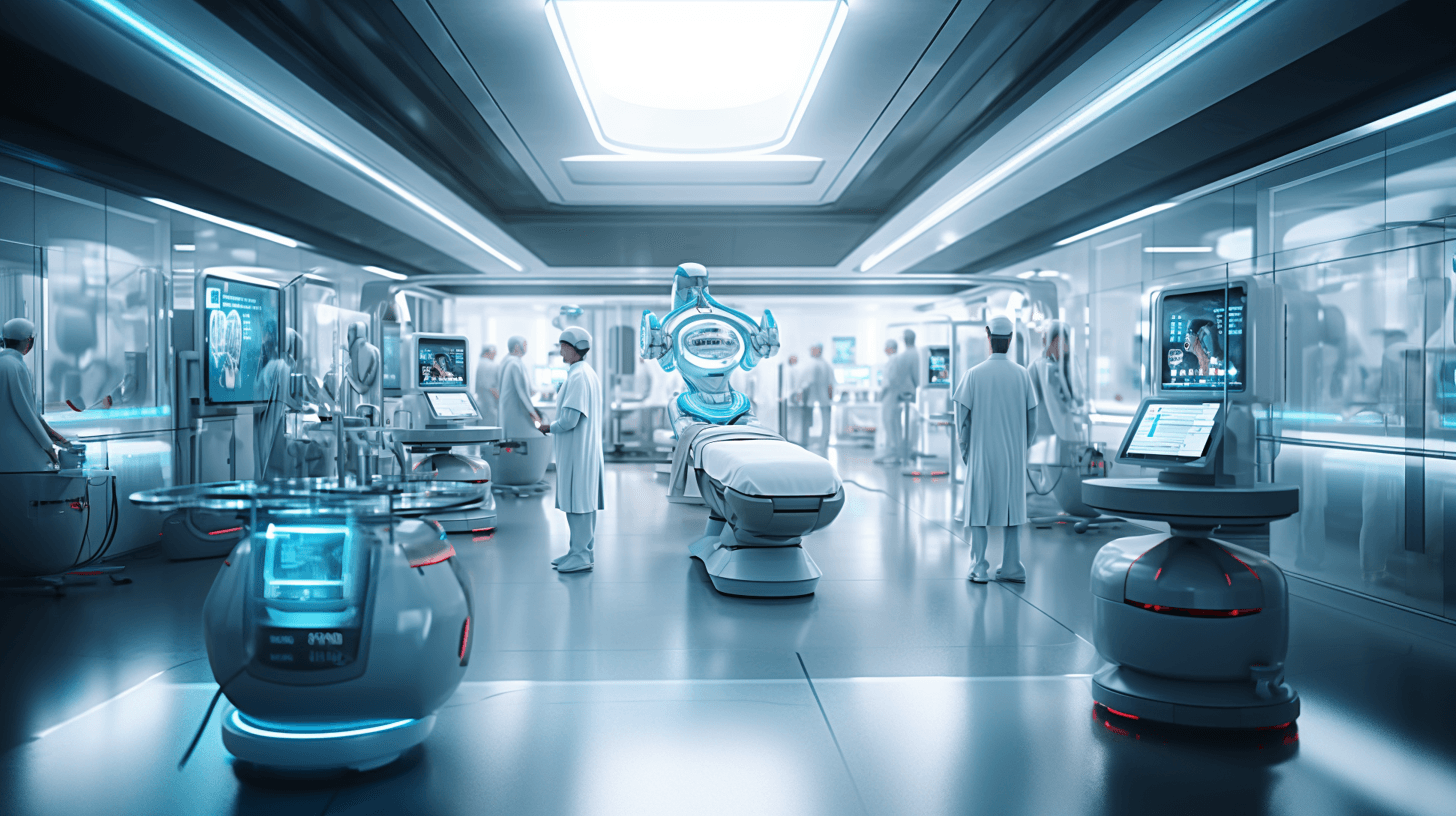AI in Healthcare: Pioneering the Future of Medical Revolution
In the not-so-distant future, artificial intelligence (AI) will revolutionize healthcare, promising a new era of personalized and local medical services. AI has vast potential in medical care and can transform our approach to diagnosis, treatment, and overall patient care. As AI continues to advance, it will become an integral part of the medical ecosystem, augmenting the abilities of medical professionals and improving patient outcomes.
One of the most exciting aspects of AI in healthcare is its ability to be personalized and local. Unlike traditional healthcare systems, AI has the potential to adapt to individual patient needs, providing targeted and tailored treatment plans. The localization of AI will enable patients to receive the most effective and efficient care possible, taking into consideration their unique medical history, genetic makeup, and environmental factors. With AI, healthcare will become truly patient-centric, placing the individual at the center of their medical journey.
The Power of AI in Healthcare
The power of AI in healthcare lies in its potential to transform the entire industry. By leveraging advanced algorithms and machine learning, AI can analyze vast amounts of medical data, identify patterns, and make accurate predictions. This enables healthcare professionals to make more informed decisions, improving patient outcomes and reducing healthcare costs.
Currently, AI is already making its mark in healthcare. In diagnostic imaging, AI algorithms detect and classify abnormalities in medical scans with high accuracy. This not only speeds up the diagnosis process but also enhances the accuracy of the results. AI-powered chatbots are also being used to provide instant medical advice and support, reducing the burden on healthcare providers and increasing accessibility to healthcare services.
AI and Privacy in Healthcare
As AI becomes more integrated into healthcare, it is essential to address privacy concerns. Patient confidentiality is paramount, and AI can play a vital role in maintaining privacy in healthcare settings. Advanced encryption algorithms and secure data storage systems protect patient information from unauthorized access.
AI can also actively monitor and identify potential leaks in private health information (PHI). By analyzing patterns and anomalies in data access, AI algorithms alert healthcare providers to potential security breaches, enabling immediate action to prevent further compromise of patient privacy.
Furthermore, AI can assist in removing personally identifiable information from healthcare datasets, thus anonymizing the data and protecting patient privacy while enabling valuable research and analysis.
Revolutionizing Healthcare with AI
AI has the potential to revolutionize healthcare in numerous ways, particularly in the areas of drug interactions, medication development, and accurate diagnosis.
Drug interactions can be complex and potentially life-threatening. AI algorithms analyze individual patient data, including medical history, current medications, and genetic factors, to identify potential drug interactions and provide personalized recommendations to healthcare professionals. Not only does this improves patient safety, but it also enhances the effectiveness of treatment plans.
AI is also making significant contributions to medication development. By analyzing vast amounts of medical research and clinical trial data, By analyzing vast amounts of medical research and clinical trial data, AI algorithms identify patterns and predict the efficacy and potential side effects of new medications, speeding up the drug development process and creating safer and more effective treatments.
Accurate diagnosis is another area where AI shines. AI algorithms analyze medical images, such as X-rays and MRIs, with a high level of accuracy, helping healthcare professionals detect early signs of diseases and provide timely interventions. Improving patient outcomes also reduces the burden on healthcare systems by optimizing the use of resources.
Wrapping Up
The future of AI in healthcare is promising, offering personalized and local medical services that will revolutionize the industry. Through AI, healthcare professionals can access powerful tools and insights to enhance their decision-making and improve patient outcomes. With proper attention to privacy concerns and the integration of AI into various healthcare domains, we can expect innovative solutions that will transform how we approach diagnosis, treatment, and overall patient care. The future of healthcare is here, and it is driven by the power of AI.
Interested in the Future of AI?
-
The Future of AI: Local AI On Your Devices
Discover the ‘future of AI’ through secure, private local device interactions, showcased by Apple’s strategies.
-
The Future of AI: Personalization and Flexibility
Discover how Personal AI is revolutionizing customer experiences by providing truly tailored and flexible personalization strategies.
-
The Future of Content Marketing: AI-Generated Content
Explore the revolution of AI-generated content in marketing. Learn about its current state, benefits, challenges, and future implications.








